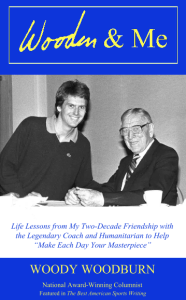 The Tokyo Olympics, as the Games always do, makes me think of Special Olympics meets I have covered.
The Tokyo Olympics, as the Games always do, makes me think of Special Olympics meets I have covered.
John Steinbeck, among other great writers, claimed fiction is often more truthful than nonfiction. While the names and location have been changed, the track scene below excerpted from my nearly completed novel “all is not broken” truly happened. Backstory: Charley and Finn are best friends, and Kenny is Finn’s autistic brother.
*
“Never give up, for that is just the place and time that the tide will turn.”
Harriet Beecher Stowe’s quote on display in her Hook Farm home in Hartford sent Charley’s thoughts racing back in time, back to Brooklyn. She thought the abolitionist author’s inspirational words perfectly described Kenny – especially at his Special Olympics swim and track meets.
Actually, “never give up” pretty much characterized every Special Olympian in Charley’s eyes.
Charley went with Finn to many of Kenny’s races and both girls got gooseflesh each time. While no world records ever fell, some of the competitors did – but only those who, like Kenny, were physically blessed enough to be able to stand in the first place. After all, many Special Olympians compete in wheelchairs.
When someone held a pity party for themselves, and this included Charley on rare occasions, Geepa would gently refocus their perspective by noting: “I felt sorry for myself because I had no shoes – and then I met a man who had no feet.” That was how watching the Special Olympics made Charley feel – blessed to have feet and shoes, and legs and arms and hands that worked perfectly.
In turn, Charley recalled a Special Olympics track meet in Brooklyn when she saw a young boy – probably about twelve years old, she guessed – stumble at the halfway mark of the hundred-meter dash. The race was called a “dash” but in truth some of the competitors walked and others limped and still others rolled in their wheelchairs.
The stumbling boy fell headfirst and bloodied his knees, bloodied his palms, and also bloodied his nose. Hearing the crowd groan with alarmed empathy, Kenny – in the neighboring lane, but far ahead of all the other runners – stopped cold ten meters shy of the finish-line tape and looked up into the stands and then back over his shoulder.
Seeing the boy sprawled on the track, Kenny started running again…
…not to the finish line to win the blue ribbon, but in the opposite direction toward the fallen competitor.
As the other racers continued full speed ahead, Kenny helped the injured runner to his feet and, with his shoulder under the boy’s arm to lend support, walked the final fifty meters at his side. Every spectator in the stands stood and cheered as though the two boys were running for the winning touchdown in the Super Bowl.
Actually, Charley did not cheer – she was too proud and too choked up with tears to do so. Little did she know that that example of sportsmanship and kindness would later change her life.
Having forfeited a blue ribbon for winning the hundred meters, Kenny disappointedly settled for a participation ribbon. Charley was of an opposite mind. Whenever she looked at the “Wall of Fame” in Kenny’s room, her eyes would invariably find their way to the white ribbon he got for finishing in a tie for last place. It, more than the many, many, many blue ribbons and gold medals combined, made Charley smile the widest because it truly highlighted the motto of the Special Olympics:
“Let me win, but if I cannot win let me be brave in the attempt.”
* * *
Woody Woodburn writes a weekly column for The Ventura County Star and can be contacted at WoodyWriter@gmail.com. Follow him on Twitter and Instagram at @woodywoodburn. His SIGNED books are available at www.WoodyWoodburn.com.

 Personalized Signed copies of WOODEN & ME: Life Lessons from My Two-Decade Friendship with the Legendary Coach and Humanitarian to Help “Make Each Day Your Masterpiece” and “Strawberries in Wintertime: Essays on Life, Love, and Laughter” are available at WoodyWoodburn.com
Personalized Signed copies of WOODEN & ME: Life Lessons from My Two-Decade Friendship with the Legendary Coach and Humanitarian to Help “Make Each Day Your Masterpiece” and “Strawberries in Wintertime: Essays on Life, Love, and Laughter” are available at WoodyWoodburn.com
